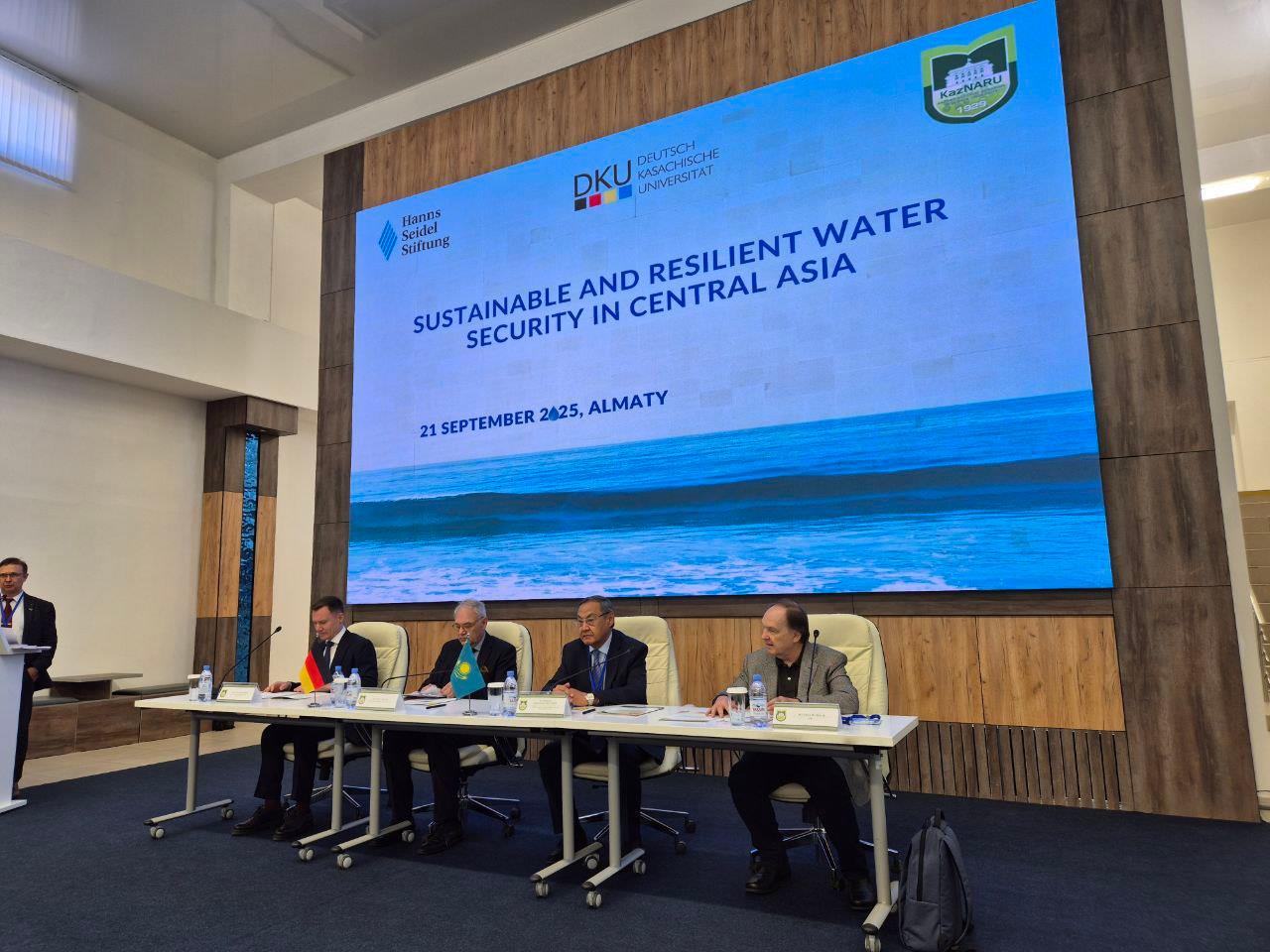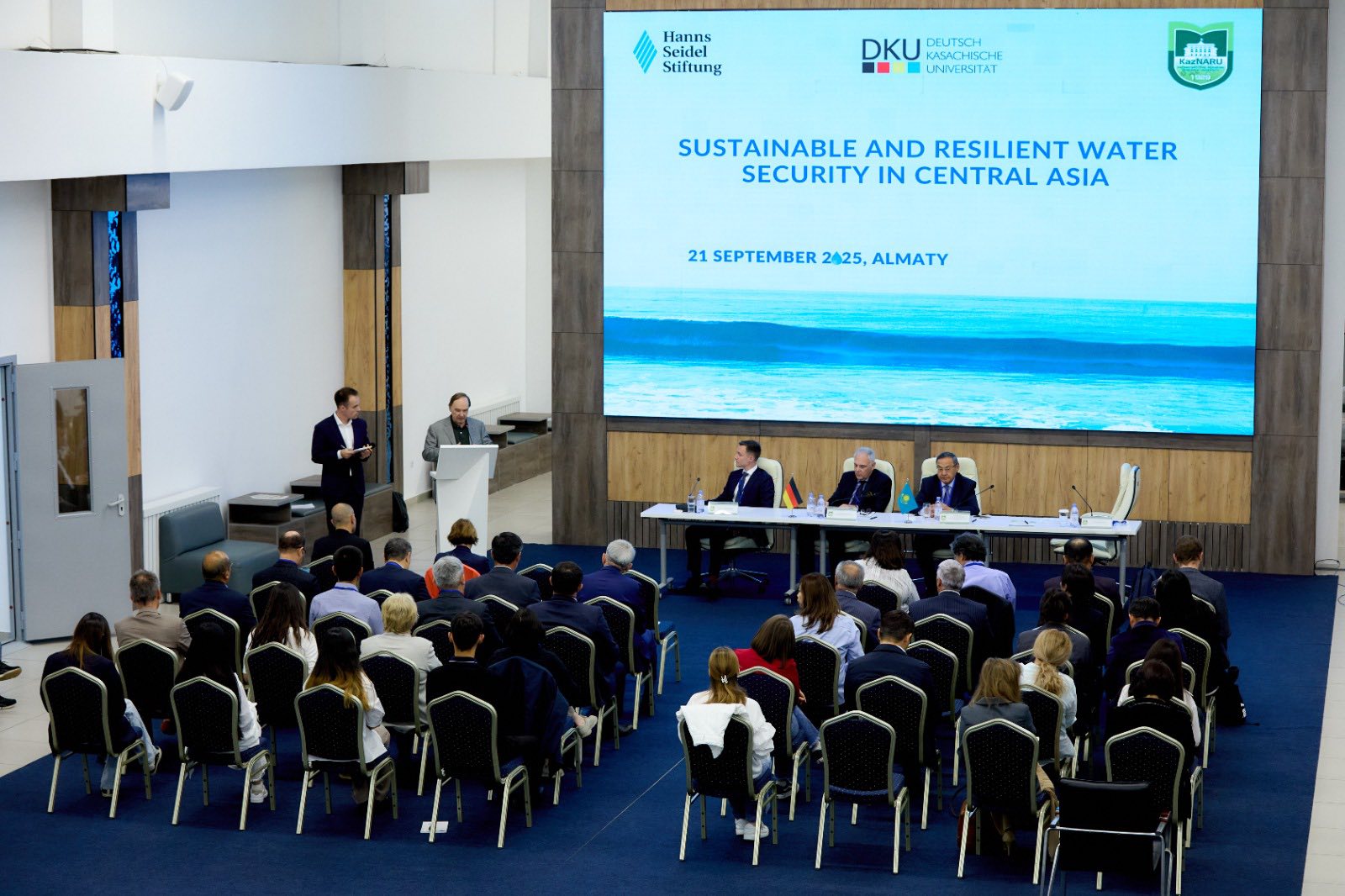No. 81 (605) September 2025
Workshop on Sustainable and Resilient Water Security in Central Asia
On September 21, a workshop “Sustainable and Resilient Water Security in Central Asia” was held in Almaty. The workshop was organized by the Kazakh National Agrarian Research University (KazNARU) together with the Kazakh-German University (DKU) and supported by the Hanns Seidel Foundation. The event brought together representatives of academic and educational institutions, international organizations, as well as independent experts from Central Asia and Europe. Expert Alexander Dolidudko represented SIC ICWC.

The signing of a Memorandum on the establishment of the Nexus Institute was a key highlight of the workshop. The Nexus Institute will serve as a platform for scientific cooperation and knowledge exchange in the field of water, energy, and food security. The Nexus Institute is envisioned as a research and training center focused on developing integrated and sustainable solutions for land, water and energy management and biodiversity conservation by combining the scientific expertise of regional and international partners.
“Today’s step symbolizes the joint efforts of countries and organizations for the future of the region. The Nexus Institute will help to find practical solutions to the most pressing water-related challenges,” noted Professor Wolrad Rommel.

The workshop was structured around three morning sessions:
- Policy session — addressing water scarcity challenges and possible joint solutions for the Central Asian countries.
- Digitalization session — exploring new technologies for water analyses and monitoring.
- Technical session — modernization of water infrastructure in the face of climate change.
At the plenary session, Alexander Dolidudko emphasized the importance of applying the Nexus approach in research and project work. He highlighted that SIC ICWC is conducting studies on “Infrastructure issues, resilience to climate change (Nexus approach)” with the support of the German Agency for International Cooperation (GIZ) under the Green Central Asia initiative. He presented preliminary results of this research to participants, who also provided valuable insights and recommendations to enhance the quality of the final report.
The research team also joined the morning sessions and included national experts from the Republic of Kazakhstan, A.D. Ryabtsev and K.K. Yakhiyayeva, and national expert from the Kyrgyz Republic, Ch.M. Uzakbayev.
Following the plenary sessions, participants jointly drew conclusions and outlined directions for future cooperation, emphasizing the need for an integrated approach and knowledge-sharing among the countries of the region.
The key areas to be addressed included:
Development of regulatory and legal framework for the sustainable management of water and land resources in Central Asia.
Digital solutions for nature monitoring.
Training professionals capable of working in the context of climate change.
Training professionals capable of working in the context of climate change.
Finally, all participants reached a common conclusion that sustainable and resilient water use in Central Asia can be reached only through joint dialogue, exchange, and science-policy interface.